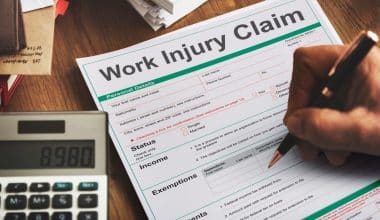Consider finding out more about the position of an insurance claims adjuster if you’re interested in careers in the insurance sector other than those held by insurance agents. In simple terms, insurance adjusters confirm each party’s financial obligations and assist in managing all facets of the claims procedure. So, knowing more about the route to this profession will enable you to accomplish your professional objectives.
In this article, we’ll go over the duties of insurance adjusters, explain how to enter the field, look at the different types of insurance adjusters, and talk about the necessary qualifications, pay, and employment prospects for this field.
Who is an Insurance Adjuster?
An insurance adjuster works as an agent for insurance claims. The task of assessing an insurance claim to ascertain the insurance company’s responsibility under the terms of an owner’s policy falls to a claims adjuster.
Adjusters come in a variety of varieties. They might work as independent contractors or public adjusters employed by the claimant, or they could represent the insurance company. Candidates must pass a licensure exam and complete a course to qualify for an adjuster license. They need to take continuing education classes to keep their licenses current. An adjuster license is also necessary for foreign businesses that handle insurance adjuster claims on behalf of insurers with headquarters in the United States.
What is the Work of an Insurance Adjuster?
The primary responsibility of an insurance claims adjuster is to look into claims and establish the insurance company’s culpability in specific circumstances. Adjusters for insurance claims work in a range of insurance contexts, such as property, health, vehicle, and life insurance. An insurance adjuster’s duties may require them to carry out the following:
- Interviewing every individual connected to the insurance claim
- Speaking with any witnesses who were there when the accident or damage happened Obtaining relevant police and medical reports
- Collecting all evidence—statements, pictures, and records, for example—that either validates or refutes a claim
- Figuring out if and to what degree an insurance policy covers a particular claim
- Putting all the data together in a report for the insurance provider
The majority of claims handled by insurance claims adjusters have a direct bearing on a person’s life, health, property, or auto insurance. A medical claims adjuster, for instance, might ascertain whether a patient’s insurance covers a specific medical procedure before approving or rejecting the claim. Auto insurance inspectors may examine vehicle damage or collisions.
The Skills Needed by Insurance Adjusters
A competent insurance claims adjuster needs to possess several crucial abilities. Practical insurance adjusters typically possess the following abilities:
#1. Computer Skills
For their work, insurance claims adjusters primarily rely on computers and software. Insurance adjusters must be proficient with computer systems because most insurance firms use electronic means to provide claim updates and estimates. It can be helpful to know how to use claims adjustment software, create documents, and send emails.
#2. Interpersonal Skills
Insurance adjusters frequently communicate with various parties, such as witnesses in an insurance claim, insurance companies, and insurance policyholders. Effective communication is essential to the job of an insurance adjuster since it can guarantee that all parties are informed about a claim in a timely and sufficient manner. These people must have written and spoken communication skills.
#3. Ability to Manage Time Well
As an adjuster for insurance, you might handle several claims concurrently. You must effectively manage your time if you want to do all of your chores and perform well at work. This is particularly relevant to independent claims specialists who handle catastrophic claims since many policyholder claims may have a time constraint.
How to Become an Insurance Adjuster
Becoming an insurance adjuster is not a career choice that people often consider. However, an associate’s or bachelor’s degree may be desirable for insurance claims adjusters. After that, they have to study and get through a licensure test.
Certain states may mandate a predetermined number of training hours. After that, to maintain their license, insurance adjusters must get continuing education credits. Every two years that a license is valid, licensed independent insurance adjusters in California must complete a minimum of 24 hours of continuing education.
The majority of insurance adjuster specialists follow these stages to pursue their careers:
#1. Fulfill the Prerequisites for a Minimum of Education
Typically, businesses require a high school certificate or equivalent as a minimum qualification to work as a claims adjuster. While most insurance claims adjuster jobs require a high school degree, having an associate’s degree or higher may help you stand out. Suitable majors could be:
- Finance
- Management
- Communications
- Business
#2. Choose the Kind of Adjuster You Wish to Work For
There are various job opportunities for insurance adjusters. Deciding on your career path—staff, independent, or public adjuster—will help you determine what steps to take. This can also help you get a better understanding of what to expect from the job search process and who to network with to broaden your career prospects.
#3. Fulfilling Licencing Prerequisites to Obtain Your Licence
Insurance adjusters must hold a license to adjust insurance in many states. You may finish a pre-licensing course to be eligible to sit for your state’s licensure exam. Numerous courses are offered, many accessible online and in a classroom setting. Obtaining a reciprocal license in the state where you intend to operate is crucial if you want to work outside of your home state. Find out what has to be done by researching the state regulations in your area.
#4. Keep Your license Current
It’s crucial to keep your insurance adjuster license current by completing continuing education requirements and renewing it regularly once you’ve obtained your license. Both in-person and online courses can be taken to obtain continuing education credits. The standards for keeping your license current vary by state, so review your local policies and create a plan for preserving your credentials.
Types of Insurance Adjusters
Within this field, there are various kinds of insurance claim adjusters. The most well-known categories of insurance adjusters are as follows:
#1. Separate Adjuster
A person who works as a contractor for several insurance firms or outside groups is known as an independent insurance adjuster. Insurance firms directly hire these adjusters to handle claim investigations and related decision-making. Independent adjusters typically handle claims relating to natural disasters that have a significant impact on a large population, such as hurricanes, fires, or other events. To carry out their work, this claims adjuster might have to visit the impacted locations.
#2. Employee Redress
The most well-known kind of insurance claims adjuster is usually a staff adjuster. These insurance adjusters handle claims for the customers of insurance companies while working for insurance firms. The majority of staff adjusters are employed full-time. Insurance adjusters can manage medical, property, and life insurance claims and claims about auto accidents and catastrophes. One of the most prevalent types of staff adjusters is an employee of an auto insurance firm.
#3. Public Mediator
Professionals who work directly for consumers or policyholders are known as public insurance adjusters. Individuals may hire these adjusters to look into insurance settlements that they believe to be unjust or inadequate. When someone is in an automobile accident and their insurance company denies their claims for repairs, for instance, they can hire a public adjuster to evaluate the claim and represent them.
Advantages of Working as an Insurance Adjuster
Insurance adjusters enjoy extremely stable employment since there is a constant need for their services, especially during economic downturns. They are called upon to assess the damage natural disasters inflict on individuals, companies, and industries. In addition, if you’re prepared to work hard and pass the license exam, being an insurance adjuster is not too difficult.
Furthermore, an insurance adjuster is given a great deal of latitude in their work. Insurance adjusters work on anything from estimating hurricane damage to performing paperwork, consultation, inspection, and more. It’s undoubtedly a mobile career. You can tailor this career to focus on the aspects you enjoy and hire someone else to do the rest. In particular, as an independent insurance adjuster, you can determine your rates and terms of payment.
Salary of an Insurance Adjuster
The average yearly compensation for insurance adjusters across the country is $60,394. However, depending on their employer, experience level, education, and region, each insurance adjuster may make less money. The United States Bureau of Labour Statistics (BLS) projects that automated technologies will cause the employment market for many insurance adjusters to contract by 6% during the next ten years.
What is the Meaning of Adjusters?
One that is flexible. in particular, an insurance representative who conducts property or person damage investigations and provides compensation estimates.
What is the Job Description of an Insurance Adjuster?
An insurance adjuster gathers data from multiple sources to assess insurance responsibility according to the degree of personal or property damage. They speak with witnesses and make claims, and they frequently confer with experts like engineers and policyholders.
What is Insurance Claims Management?
The term “management” refers to the broad range of counsel and services that businesses offer in connection with lawsuits seeking damages, compensation, restitution, or other remedies for monetary losses or violations of the contract.
What is Claims Control?
An insurance adjuster provision permits reinsurers to manage the claims and prevents the cedent from completing the settlement without the reinsurer’s consent. A claims collaboration provision emphasises the reinsurer’s and ceding company’s cooperative relationship.
Conclusion
Adjusters frequently focus on particular insurance policies and damages (such as business property insurance). Business owners collaborate with a disaster adjuster when a hurricane or flood strikes an area that results in significant water damage. These claim specialists have expertise in managing events that impact a whole area.
Specialized business losses or complicated medical insurance claim settlements may be the area of expertise for other adjusters. For example, maritime casualty adjusters look into losses from inland or open-sea shipping incidents. Others may look into harm to crops or agricultural fields.
- HOW TO SCARE AN INSURANCE ADJUSTER: Complete Guide to Insurance Claims
- State Farm Insurance Claim Time Limit: Explained
- BEST CONTRACTOR LIABILITY INSURANCE COMPANIES 2023
- IS LIFE INSURANCE A GOOD CAREER PATH? Best Paying Jobs In Life Insurance
- 10 Best Paying Jobs in Life Insurance In 2023-2024






